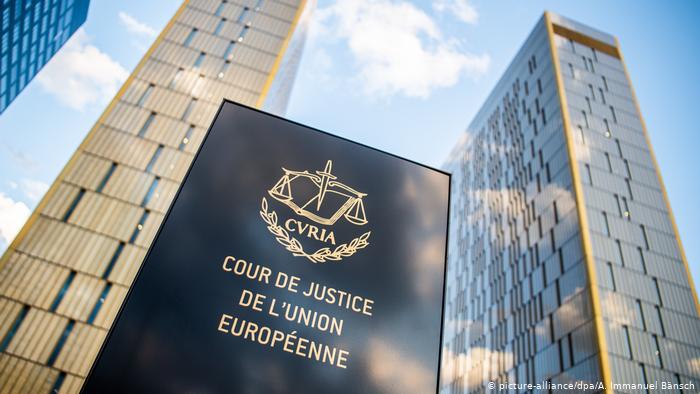The European Court of Justice has ruled that unaccompanied minors may only be sent back to their country of origin if there were "adequate reception facilities." Otherwise, the court said, they should be allowed to stay.
In a ruling on Thursday, the European Court of Justice (ECJ) in Luxembourg said member states should only be able to deport unaccompanied minors where they could ensure that relatives or an appropriate institution in the home country would receive the child.
The court ruled that such deportations — even if they did not take place until the minor reaches the age of 18 — did not sufficiently take into account the best interests of the child. As a result, the court ruled, the practice was not compatible with EU law.
"Such a minor would thus be placed in a situation of great uncertainty as to his or her legal status and his or her future," the Luxembourg judges said.
The court specifically rejected the Dutch practice of dealing with underage asylum-seekers and migrants who are not entitled to refugee protection.
For children under 15 years of age, suitable reception options in the country of origin are examined. Only if a suitable one is found will a "return decision" be issued.
However, for those over 15, Dutch authorities wait for the age of majority before returning minors to their origin country without inquiring where they will end up.
Young migrant's challenge to decision
A refugee aged 15 years and 4 months at the time filed a complaint against such a return decision. The boy said he had been born in Guinea but later lived in Sierra Leone with an aunt who had died. He then left for Europe.
The young man claimed to have been the victim of human trafficking and sexual exploitation, suffering serious psychological trauma as a result. However, Dutch officials decided he was not eligible for a fixed-term residence permit, refugee status or subsidiary protection.
His appeal was on the grounds that he did not know where his parents lived and would not be able to recognize them upon his return.
In their decision, the judges said, member states "must necessarily take into account the best interests of the child at all stages of the procedure, which entails a general and in-depth assessment of the situation of that minor being carried out."
The court ruled that deportation with no suitable reception facility would affect the individual's schooling and his connection with a foster family in the host country.
"It follows that, if such reception facilities are not available in the state of return, the minor concerned cannot be the subject of a return decision."
The court also ruled that EU countries should not distinguish between different groups of minors merely based on their age.
Latest Stories
-
Paris 2024: Opening ceremony showcases grandiose celebration of French culture and diversity
2 hours -
How decline of Indian vultures led to 500,000 human deaths
3 hours -
Paris 2024: Ghana rocks ‘fabulous fugu’ at olympics opening ceremony
3 hours -
Trust Hospital faces financial strain with rising debt levels – Auditor-General’s report
4 hours -
Electrochem lease: Allocate portions of land to Songor people – Resident demand
4 hours -
82 widows receive financial aid from Chayil Foundation
4 hours -
The silent struggles: Female journalists grapple with Ghana’s high cost of living
4 hours -
BoG yet to make any payment to Service Ghana Auto Group
4 hours -
‘Crushed Young’: The Multimedia Group, JL Properties surprise accident victim’s family with fully-furnished apartment
5 hours -
Asante Kotoko needs structure that would outlive any administration – Opoku Nti
5 hours -
JoyNews exposé on Customs officials demanding bribes airs on July 29
6 hours -
JoyNews Impact Maker Awardee ships first consignment of honey from Kwahu Afram Plains
7 hours -
Joint committee under fire over report on salt mining lease granted Electrochem
7 hours -
Life Lounge with Edem Knight-Tay: Don’t be beaten the third time
7 hours -
Pro-NPP group launched to help ‘Break the 8’
8 hours

